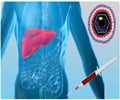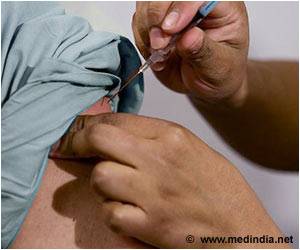A community-based hepatitis B virus screening effort found that targeted outreach to Asian American populations can identify groups at high risk for infection.

‘Targeted outreach to Asian American populations can identify groups at high risk for hepatitis B infection and direct them to appropriate follow-up care to help prevent the onset of liver diseases, including cancer.’





A community-based hepatitis B virus screening effort led by UC Davis researchers found that targeted outreach to Asian American populations can identify groups at high risk for infection and direct them to appropriate follow-up care to help prevent the onset of liver diseases, including cancer. Published online today in Public Health Reports, the research involved screening 1,004 Asian American adults in Sacramento County at 28 different events over a one-year period. An outreach team from the UC Davis Comprehensive Cancer Center worked with Asian American community organizations and the UC Davis student-run clinics to promote and co-sponsor hepatitis B screening events. The effort was part of the national Hepatitis Testing and Linkage to Care Initiative, which aims to test those at highest risk for infection and to get those who test positive additional tests and counseling about next steps.
"We realized that a one-size-fits-all approach would not work because each ethnic group faced different barriers when it came to screening," said lead author Julie Dang, director of community engagement and outreach at the cancer center. "So we created different campaigns to target each of the communities and came up with the best screening plan for the individual populations."
Screenings were held at churches and community centers in the neighborhoods where the populations are concentrated, and interpreters were on hand at each event to facilitate communication with each person getting screened, Dang said.
Nearly all of those screened were born outside of the United States. Among them, 76 (or 7.6%) tested positive for the infection, including 31 Hmong, 23 Vietnamese, 17 Chinese, two Koreans and three from other Asian communities.
Advertisement
Sacramento has the nation's 10th largest Asian population in the United States, making it an excellent location for a hepatitis B screening effort. The researchers have already launched another two-year effort to screen an additional 2,000 Asian Americans for the hepatitis B infection. The second study also involves screening patients seen at UC Davis Health System, employs navigators for patients who test positive and follows up with patients six months after their first visit.
Advertisement















